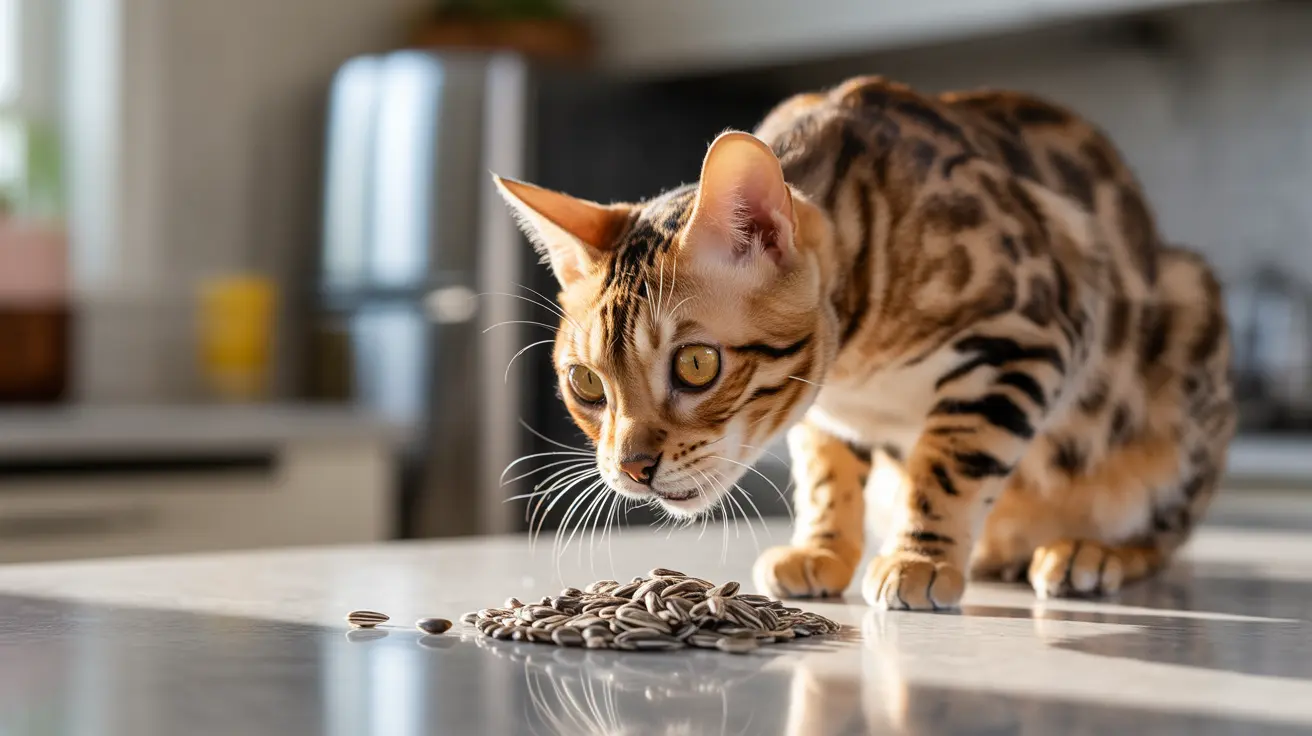Many cat owners wonder about sharing human snacks with their feline friends, and sunflower seeds often raise questions. While these nutrient-rich seeds aren't inherently bad for cats, there are important considerations regarding their safety, preparation, and portion size that every pet parent should understand.
In this comprehensive guide, we'll explore everything you need to know about feeding sunflower seeds to cats, including potential benefits, risks, and proper serving guidelines to ensure your pet's safety and well-being.
Safety and Toxicity of Sunflower Seeds for Cats
The good news is that sunflower seeds are non-toxic to cats, as confirmed by the American Society for the Prevention of Cruelty to Animals (ASPCA). However, this doesn't mean cats can eat them freely or in any form.
Only plain, unsalted, and shelled sunflower seeds are safe for feline consumption. The outer shells can pose serious risks, including choking hazards and potential intestinal blockages. Additionally, flavored or salted varieties are strictly off-limits due to their harmful additives and high sodium content.
Nutritional Benefits for Felines
Sunflower seeds contain several nutrients that can benefit cats when served in moderation:
- Vitamin E for skin and coat health
- Healthy fats for cellular function
- B vitamins for neurological health
- Essential minerals like magnesium and selenium
- Moderate fiber content for digestive health
However, it's crucial to remember that cats are obligate carnivores, and these plant-based nutrients should only supplement, never replace, their primary meat-based diet.
Potential Risks and Warning Signs
Despite their nutritional benefits, sunflower seeds can pose several risks to cats:
- Obesity due to high fat content
- Digestive issues from overconsumption
- Choking hazards if not properly prepared
- Possible allergic reactions
- Sodium toxicity from salted varieties
Monitor your cat closely after introducing sunflower seeds, and watch for signs of digestive upset, allergic reactions, or unusual behavior.
Proper Serving Guidelines
If you choose to offer sunflower seeds to your cat, follow these essential guidelines:
- Serve only shelled, unsalted kernels
- Limit portions to 1/4 - 1/2 teaspoon maximum
- Offer as an occasional treat only
- Never exceed 10% of daily caloric intake
- Always provide fresh water
When to Avoid Sunflower Seeds
Some cats should not be given sunflower seeds at all, including:
- Cats with existing digestive issues
- Overweight or obese cats
- Those with known food allergies
- Cats with pancreatic conditions
- Very young kittens or senior cats
Frequently Asked Questions
Are sunflower seeds safe for cats to eat, and what precautions should I take?
Yes, sunflower seeds are safe for cats when properly prepared. Always use shelled, unsalted kernels and serve in very small amounts. Remove all shells and avoid flavored varieties completely.
Can sunflower seeds provide any nutritional benefits for my cat's health?
Sunflower seeds contain beneficial nutrients like vitamin E, healthy fats, and minerals. However, these benefits are minimal compared to a proper cat food diet and should only be considered supplementary.
What are the risks or side effects if my cat eats too many sunflower seeds?
Overconsumption can lead to obesity, digestive upset, diarrhea, or vomiting. The high fat content can also potentially trigger pancreatitis in sensitive cats.
How should I properly prepare and serve sunflower seeds to my cat?
Remove all shells, ensure they're unsalted and unflavored, and offer no more than 1/4 to 1/2 teaspoon as an occasional treat. Always monitor your cat's reaction.
Should I consult a veterinarian before giving sunflower seeds to a cat with health issues?
Yes, always consult your veterinarian before introducing any new food to a cat with existing health conditions, as they can advise on safety and appropriate portions based on your cat's specific needs.
While sunflower seeds aren't necessarily bad for cats, they should be treated as an occasional treat rather than a dietary staple. When properly prepared and portioned, they can be a safe supplement to your cat's regular diet. However, always prioritize high-quality cat food and consult with your veterinarian about any dietary changes or concerns.






